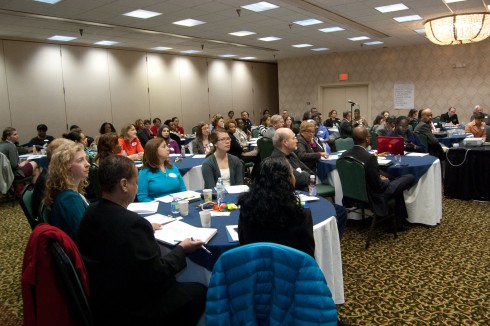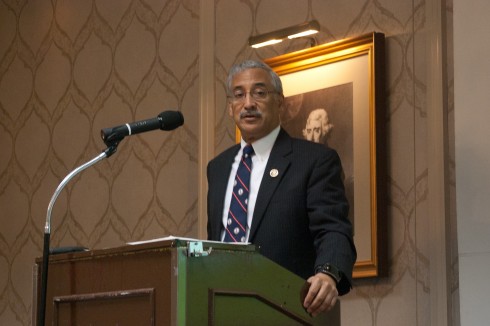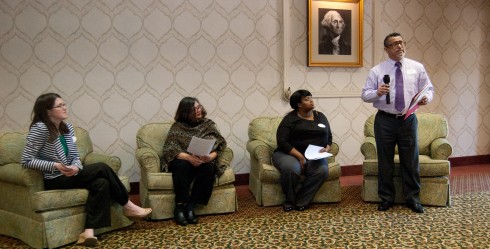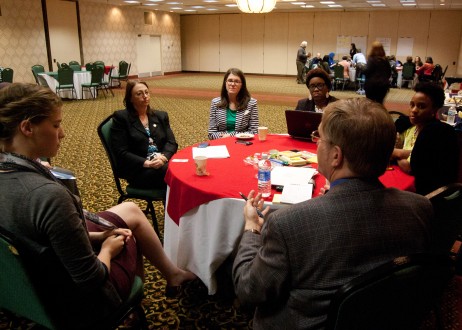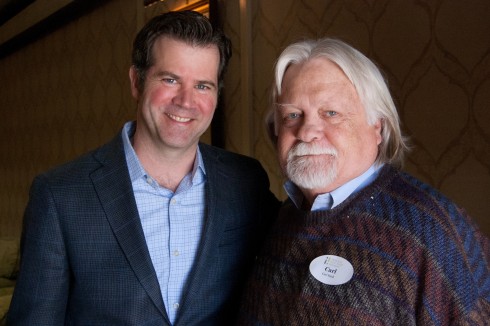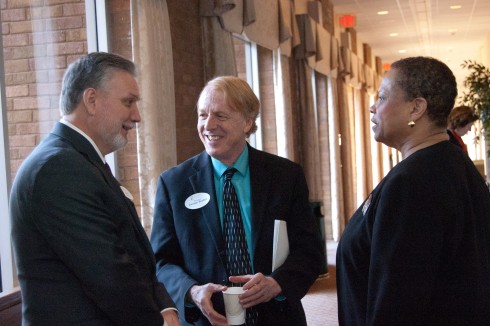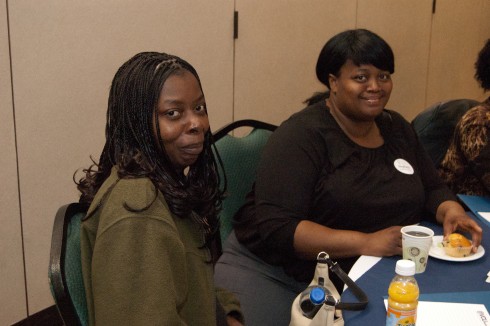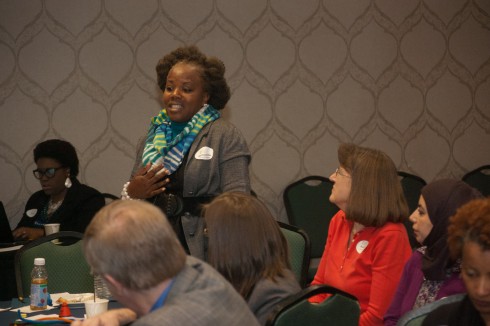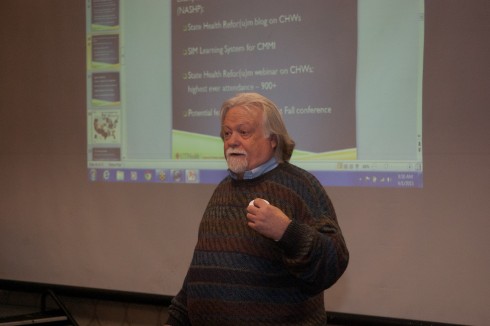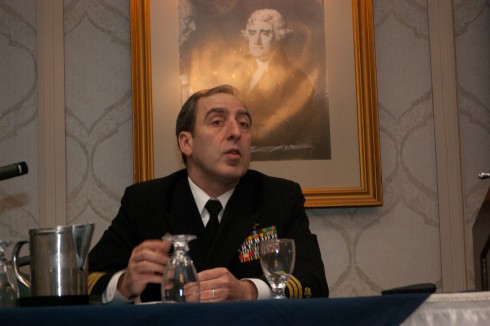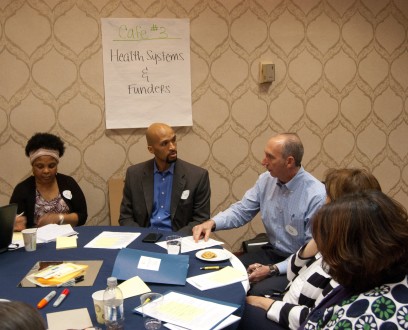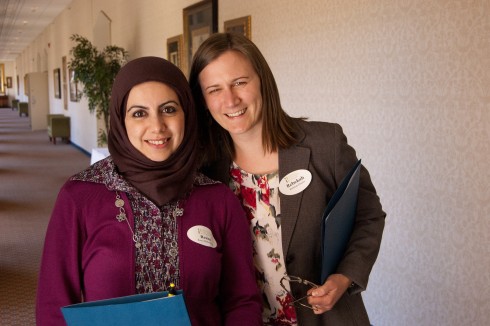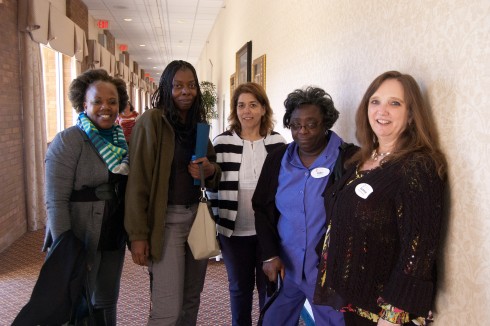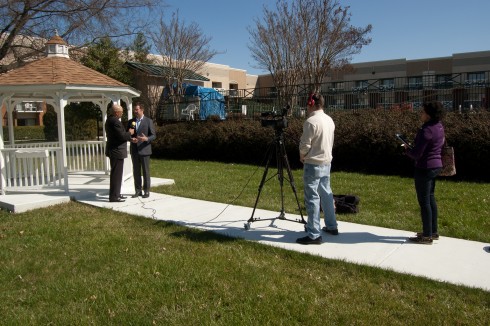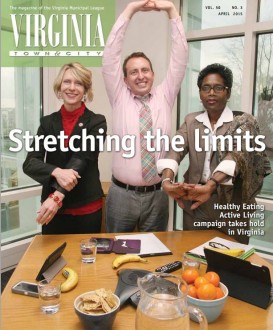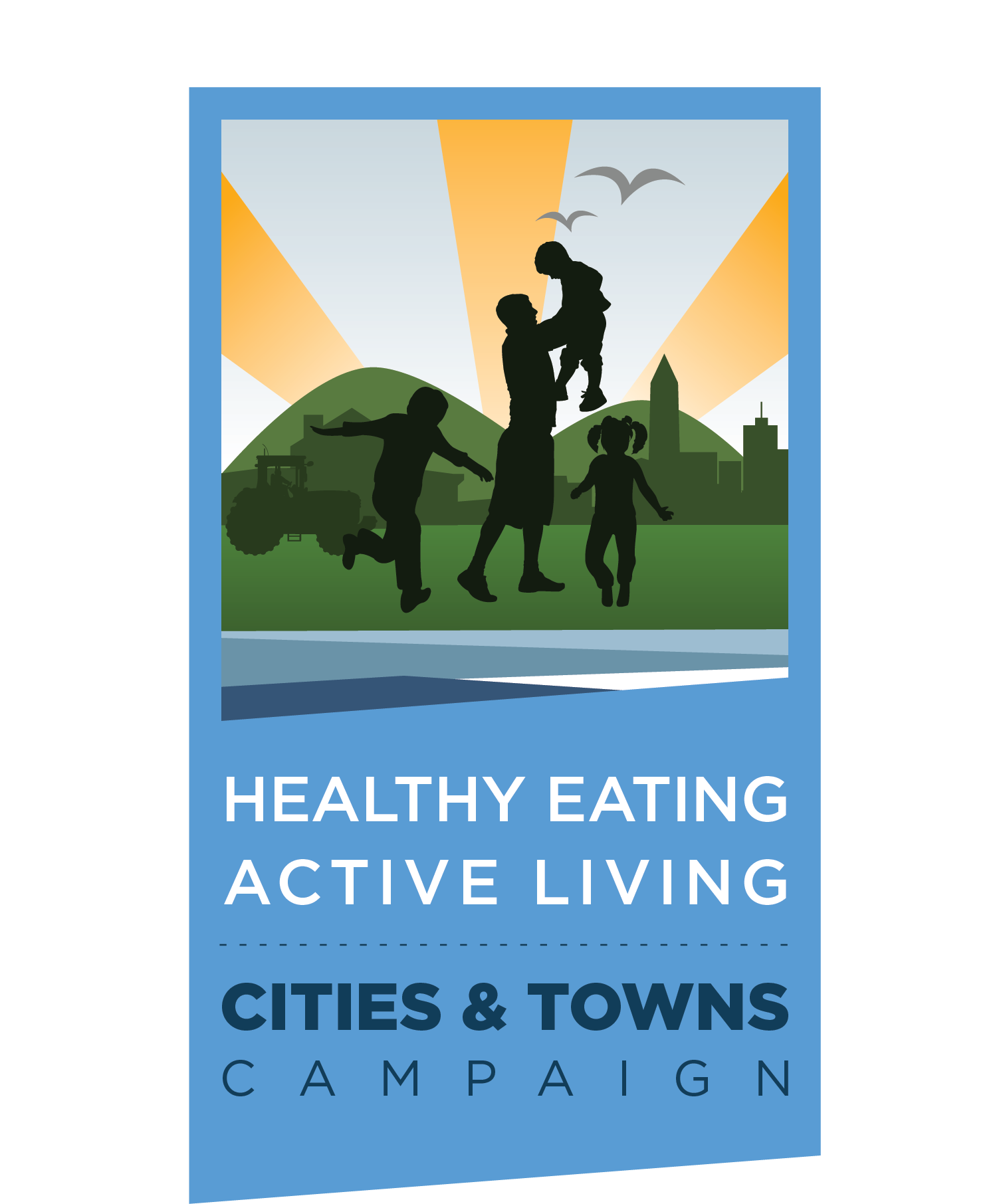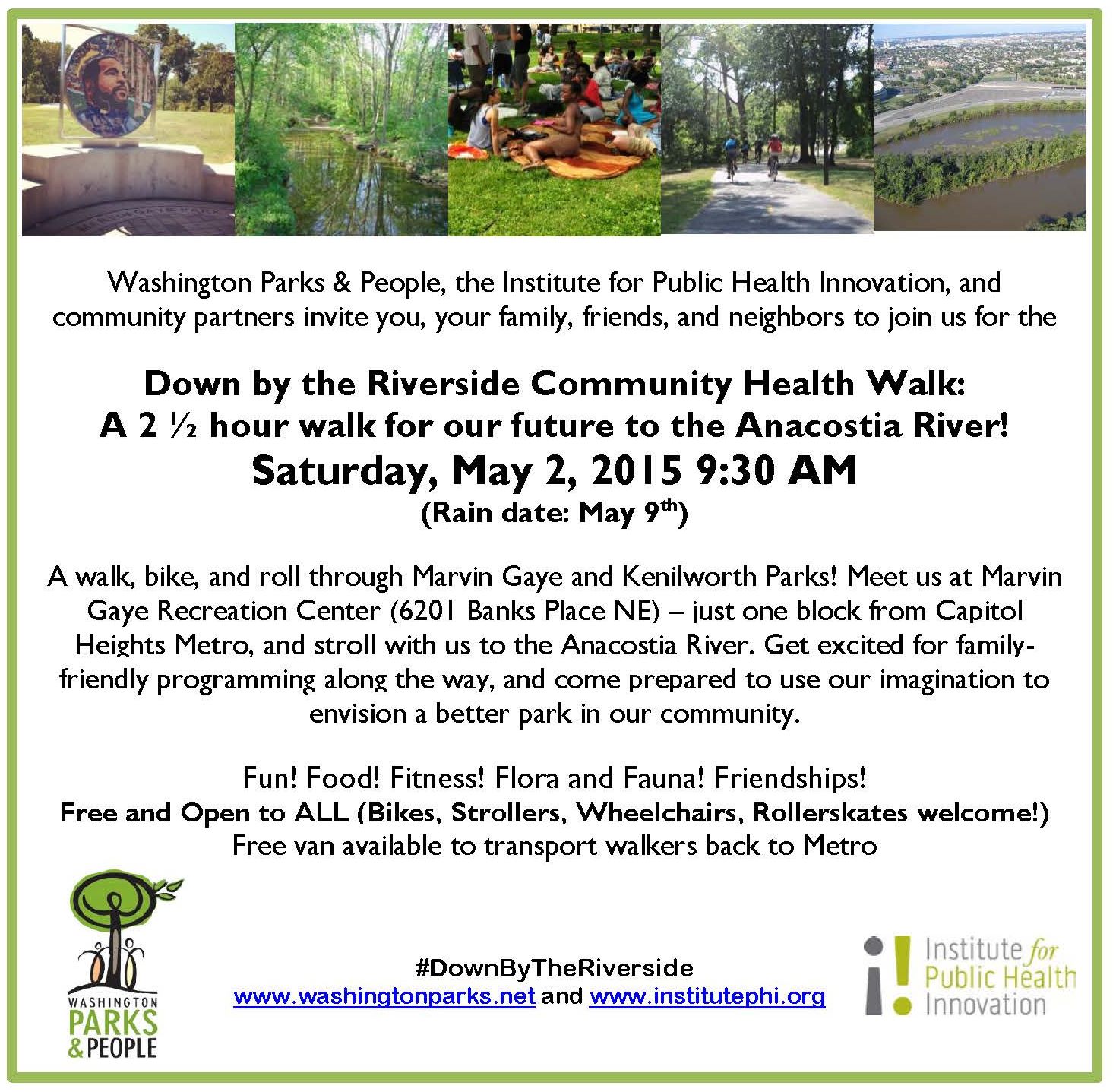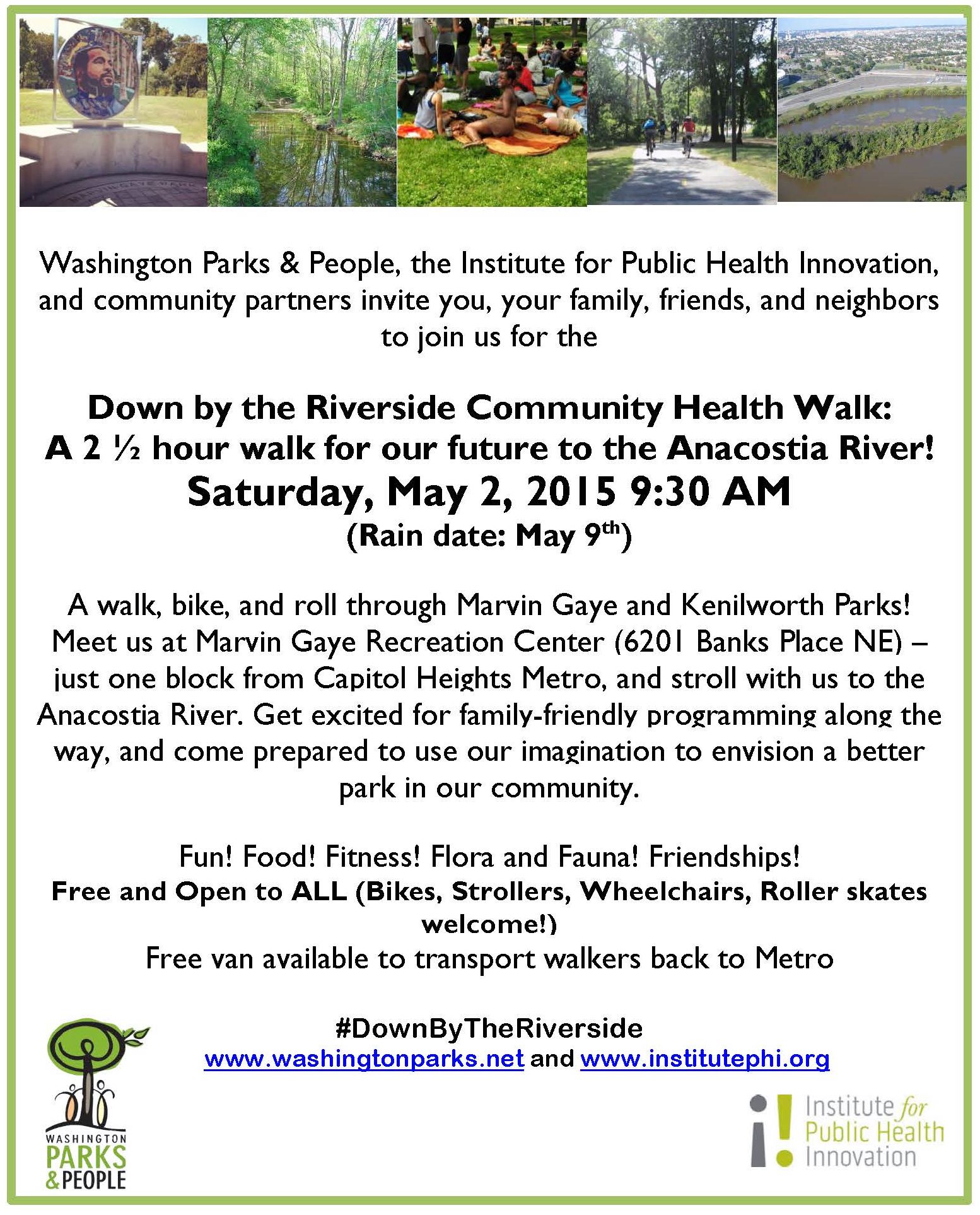PETERSBURG, VA — As part of its new strategy to promote a culture of health across the region, The Cameron Foundation kicked off the first in a series of co-sponsored workshops September 29. The “Healthy and Equitable Communities Workshop,” coordinated in partnership with Prince George County, convened officials across key sectors, such as health, education, public safety, community development, human services and the faith community to design a more broad-based approach to combating health disparities in the area. The workshop was led by Dr. Michael Royster, Vice President at the Institute for Public Health Innovation, and Abby Charles, Senior Program Manager of the organization. The next workshop, co-hosted by Sussex County, will take place October 29 to look at the social determinants of health in that locality and identify strategies to promote healthy communities for all residents.
“By bringing the partners together to look more closely at the social determinants of health, we believe the community will be better positioned to address some of the challenges that are outside of traditional health care but very much affect the quality of life for residents in the county,” explained Cameron President J. Todd Graham. Some examples of social determinants include educational attainment, safe and affordable housing, income, food access, and improved work and neighborhood environments.
– more –
The workshop used a case study of a 12-year-old girl facing multiple personal, family, and community challenges as the basis for discussions about some of the root causes of health disparities. The workshop facilitators reviewed how various groups, such as low-income populations and communities of color, experience higher rates of disease and death across many different health outcomes, including heart disease, cancer, diabetes, violence, injuries, and infant mortality, all of which are strongly influenced by limited access to supportive social determinants of health.
The workshop also stressed the importance of integrating a multicultural framework, based on a commitment to diversity, inclusion and equity, into program development and service delivery and broadening the range of partners in developing and implementing health equity strategies. Participants concluded the workshop by applying these concepts to programs, policies and services they are currently involved in, in order to enhance the health-promoting effect of their work. “Our opportunities to engage in healthy behaviors, to avoid unhealthy exposures like air and water pollution, and to live long, productive lives, are defined by where we live, work, learn and play. Creating communities that support the health and well-being of all residents requires broad partnerships among community residents, local government, nonprofits, the business community and others,” Dr. Royster emphasized.
In the Robert Wood Johnson 2015 County Health Rankings for Virginia, Prince George County ranked 28 out of 133 for health outcomes and 76 out of 133 for health factors. Graham noted that each community in the Foundation’s service area has a unique set of assets and needs for improved health, and that Prince George County community leaders and officials responded quickly to the opportunity to work across sectors toward this goal.
The Prince George work is being led by the county administrator’s office. Bill Robertson, Chair of the Prince George County Board of Supervisors, participated in the day-long session to gain a better understanding of some of the challenges that Prince George County residents might face that affect the overall culture of health in the community. “The activities helped us put ourselves in other people’s shoes to understand some of these barriers to improved health,” Robertson explained. “Also, we learned how the rural setting can make it harder to address some of these issues because residents live so far apart,” he added, noting, “We want to find ways to answer some of these concerns of our citizens, and this training has certainly helped us.”
– more –
The health equity workshop series is a component of The Cameron Foundation’s proactive work to bring together stakeholders to tackle large, systemic problems in the region. The proactive strategy, which supplements the Foundation’s responsive grants program, is expected to improve the Foundation’s impact through increased collaboration with community partners. As a complement to the Institute for Public Health Innovation’s training and technical assistance to some localities in the Tri-Cities area, the Foundation also has facilitated a partnership through the Robert Wood Johnson County Health Rankings Coaching Project to assist with improving health outcomes in Petersburg.
ABOUT THE CAMERON FOUNDATION
Founded in 2003, The Cameron Foundation is a private foundation that was formed from the proceeds of the sale of Southside Regional Medical Center by the Hospital Authority of the City of Petersburg. Its service area includes the region historically served by the hospital and includes the cities of Petersburg, Colonial Heights and Hopewell; the counties of Dinwiddie, Prince George and Sussex; and the portion of Chesterfield County lying south of Route 10. Since it began grantmaking in 2004, it has awarded $71 million to organizations serving residents of this area. Through its work, the Foundation strives to transform the Tri-Cities and surrounding counties into a healthy, vibrant and economically vital region by strategically leveraging resources for community impact.
More information about the Foundation is available on its website, www.camfound.org, or by telephone at 804 732 8900.
Contact: Risha Stebbins
Phone: 804-732-8900
# # #
